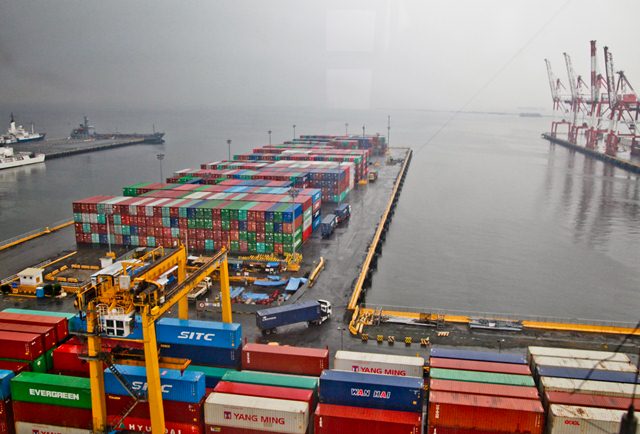The International Chamber of Commerce (ICC) has issued a 10-point roadmap to help governments fight the COVID-19 pandemic and limit its economic effects.
“We are seeing an unprecedented collapse of value chains in many sectors—with major implications for employment and the supply of goods,” said John W.H. Denton AO, ICC secretary general, in an open letter to the G20 countries on March 28.
He said ICC proposes 10 steps that countries and trade ministers can take to speed up the health response to COVID-19 and keep trade flowing to restore growth and safeguard jobs.
- Immediately eliminate tariffs on essential products to ensure necessary medical supplies are accessible and affordable. Denton noted that 78 governments are taxing imports of soap at rates of 15% or more—“incoherent in normal times, immoral in our extraordinary times.” Moreover, trade ministers should pledge not to impose any trade restrictions on essential products for the duration of the COVID-19 pandemic.
- Expedite trade facilitation for essential products. “Green lanes” should be established to provide for rapid inspection and release of essential products. Relatedly, limits to the cross-border movement of people must not apply to health and transport workers.
- Eliminate export curbs on essential products as they only further exacerbate the supply shortfall, dis-incentivize companies from increasing production, raise prices, discourage investment, provoke retaliation, and deprive countries of access to life-saving medical equipment.
- Suspend all national public procurement regulations and state-required localization. Liberalize, at least temporarily, public procurement rules in order to facilitate greater investment in production of essential medical supplies.
- Keep cargo and transport moving. Logistics providers such as air cargo and shipping facilities, and the services that support them, must remain operational throughout. Trade ministers must keep borders open and strike the right balance between trade facilitation and security, while addressing the shortage of air cargo pilots caused by quarantine requirements.
- Extend timeframes for payments of duties and fees. Ease the burden on companies, especially small businesses facing severe cash flow, by extending the payment of all customs duties, taxes and fees. Equally, extend the time for companies to respond to all “paper-based” processing deadlines and other regulatory requirements.
- Keep trade finance flowing. Take steps to ensure that banks can process trade finance transactions effectively despite workplace disruptions by promoting the use of digital documents, waiving legal prohibitions on the use of digital trade documentation, and removing the reliance on paper-based processing of transactions. There may also be a possible need for early policy interventions to maintain liquidity in the trade finance market.
- Comprehensively reform the WTO. The crisis highlights the case for broader reform of the multilateral trading system which is increasingly out-of-step with the realities of today’s economy.
- Speed up the transition to digitally enabled trade. The unexpected lurch towards remote working, cross-border e-health services and online delivery services demonstrates the urgency of updating WTO rules on the digital environment. Trade ministers should recognize the need for a high-standard agreement on the trade-related aspects of e-commerce, built around common rules to ensure open, non-discriminatory access to digital and digitally enabled markets.
- Enable digital trade through standardization. Promote greater economic inclusion through the development of open trade standards. There are major cross-industry efforts already underway, such as the ICC’s Digital Trade Standards Initiative, which can help move trade from analogue to digital, said Denton.
Photo by Jerome Monta on Unsplash









